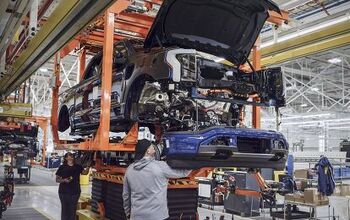Las Vegas Cybertruck Case Highlights How Much Data Your Car Collects

The Cybertruck bomb outside the Trump International Hotel in Las Vegas on New Year’s Day has brought attention to the extensive data collection capabilities of modern vehicles.
The incident, involving active-duty U.S. Army soldier Matthew Livelsberger, who tragically died by suicide, was pieced together with the help of Tesla’s data. The company's cooperation with law enforcement showcased in real time how sophisticated data systems can assist investigators—while simultaneously raising concerns over privacy and data security.
Law enforcement was able to use vehicle telemetry, camera footage, and charging station records to reconstruct Livelsberger’s journey from Colorado to Las Vegas. Tesla CEO Elon Musk personally assisted, sending a team to extract data from the damaged Cybertruck and providing critical evidence, including charging station footage.
Modern vehicles, equipped with advanced sensors and cameras, collect vast amounts of data on drivers and their surroundings. According to the Washington Post, privacy advocates worry about the potential misuse of this information, from unauthorized access to its use by law enforcement without clear regulations.
A 2023 report by the Mozilla Foundation found that over 75% of car brands reserve the right to share or sell drivers’ data. In many cases, drivers are unaware of the extent of this collection, which can include location, driving behavior, and even video footage. Tesla’s unprompted participation in the Las Vegas investigation demonstrated the benefits of data collection for public safety, however, it also showed the potential for overreach—especially given the speed Tesla was able to share sensitive data.
Don't get it twisted though, this isn't a problem unique to Tesla. Other automakers and autonomous vehicle companies also gather insanely detailed information, especially as we enter an age of software-defined vehicles. Rental vehicles, such as the Cybertruck involved in the Las Vegas explosion, further complicate matters—data collected during rentals often remain proprietary to the rental company, with limited consumer protections in place.
As cars become more connected and autonomous, balancing safety, convenience, and privacy will only get more difficult for automakers and regulators alike. Clear regulations are necessary to protect drivers from potential misuse of their data. Or you can be like me and drive a 2007 Mercury Grand Marquis which won't tell a soul where you go.
Become an AutoGuide insider. Get the latest from the automotive world first by subscribing to our newsletter here.

An experienced automotive storyteller and accomplished photographer known for engaging and insightful content. Michael also brings a wealth of technical knowledge—he was part of the Ford GT program at Multimatic, oversaw a fleet of Audi TCR race cars, ziptied Lamborghini Super Trofeo cars back together, been over the wall during the Rolex 24, and worked in the intense world of IndyCar.
More by Michael Accardi



































Comments
Join the conversation
Totalitarian dream come true. They tell us EVs and SDFs will "save the planet"; the real goal is a prison planet. When everyone has a "smart car", carries "digital currency" and a "digital ID"...the digital prison door will slam behind you...